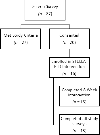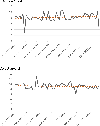'There's no straight line…' a consumer-informed intervention for FTD family care partners: the STELLA-FTD pilot study
- PMID: 37655616
- PMCID: PMC10518812
- DOI: 10.1080/13607863.2023.2250741
'There's no straight line…' a consumer-informed intervention for FTD family care partners: the STELLA-FTD pilot study
Abstract
Objectives: Behavioral symptoms and communication challenges are particularly apparent in frontotemporal degenerative (FTD) dementias. There is a paucity of psychoeducation programming specifically tailored to the needs of families with FTD. We revised an existing intervention to meet the needs of these families.
Methods: We used a quasi-experimental approach. In Phase 1, we sought consumer input about an existing intervention. In Phase 2, we modified the intervention based on the qualitative findings from Phase 1 and tested the revised intervention (STELLA-FTD) for feasibility, acceptability and early-stage efficacy. Outcome for Phase 2 included feasibility data and care partner reactivity to upsetting behaviors. Secondary outcomes included data from unobtrusive sleep monitoring. An inductive analysis of transcripts from the Phase 2 STELLA-FTD focus group provides guidance for future revisions.
Results: Fifteen family care partners participated in the Phase 1 focus groups; sixteen care partners enrolled in Phase 2. Testing in Phase 2 revealed that the care partners found our consumer-informed revised intervention both feasible and acceptable. The post-intervention findings suggest STELLA-FTD has the potential to reduce care partner reactivity to upsetting behaviors and to decrease care partner burden. Sleep did not change over the 8-week intervention.
Conclusions: The revised STELLA-FTD intervention was found to be feasible and acceptable, and has potential to improve care partner burden for families living with FTD. Providing the intervention via telehealth maximized access and engaged rehabilitation specialists in providing disease management content. Future revisions will include examination of efficacy and mechanism of action (OHSU IRB # 00022721, ClinicalTrials.gov NCT05338710).
Keywords: Frontotemporal dementia; behaviors; caregiver; intervention.
Conflict of interest statement
STELLA-FTD received approval from the Oregon Health & Science (OHSU) Institutional Review Board, # 00022721. STELLA-FTD is listed with
Figures
References
-
- Bandura A (1986). Self-efficacy. In Social foundations of thought and action: A social cognitive theory. Prentice-Hall, Inc.
-
- Beattie Z, Miller LM, Almirola C, Au-Yeung WM, Bernard H, Cosgrove KE, Dodge HH, Gamboa CJ, Golonka O, Gothard S, Harbison S, Irish S, Kornfeld J, Lee J, Marcoe J, Mattek NC, Quinn C, Reynolds C, Riley T, Rodrigues N, Sharma N, Siqueland MA, Thomas NW, Truty T, Wall R, Wild K, Wu CY, Karlawish J, Silverberg NB, Barnes LL, Czaja S, Silbert LC, & Kaye J (2020, Winter). The Collaborative Aging Research Using Technology Initiative: An open, sharable, technology-agnostic platform for the research community. Digit Biomark, 4(Suppl 1), 100–118. 10.1159/000512208 - DOI - PMC - PubMed
-
- Beck JS (2011). Cognitive behavior therapy: Basics and beyond (2nd ed.). The Guilford Press.
Publication types
MeSH terms
Associated data
Grants and funding
LinkOut - more resources
Full Text Sources
Medical





